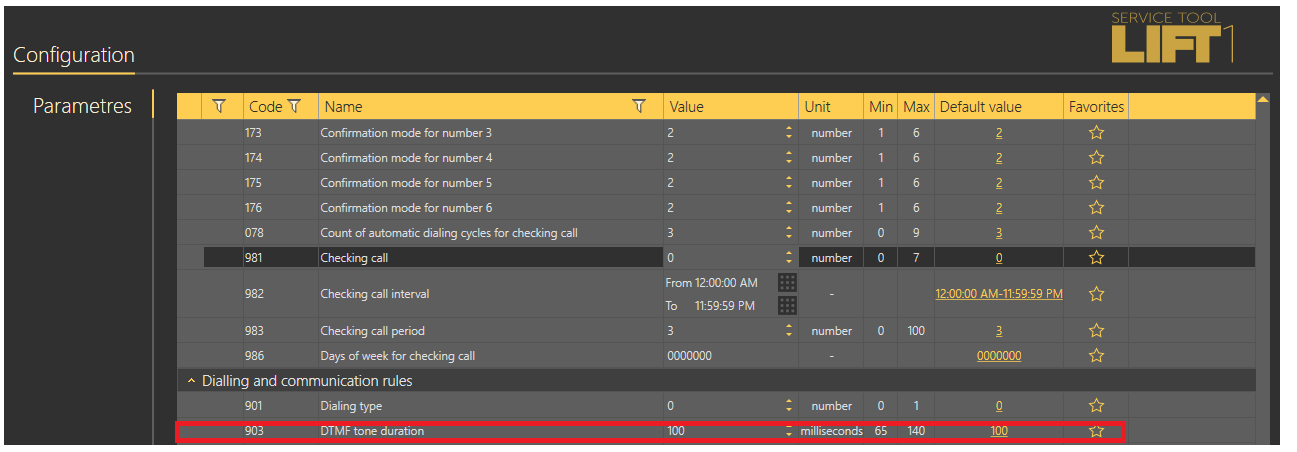Protocol P100 - How does the P100 protocol works for 2N Lift products?
Info
This FAQ describes P100 protocol which is implemented in 2N® Lift1 and 2N® Lift8. Below you can find how the signalisation works and description of the alarms.
Packet structure
Below you can find table which explains how the packet of P100 protocol looks like and what can be the values for each part of the packet.
Alarm type | Data length | Data | Checksum |
|---|
Alarm type:
1 character, Indicates the type of alarm:
1 = Alarm with voice communication
2 = Operational failure
3 = Self test alarm
Data length: 1 character, Indicates the length of the data field.
Data: 0 - 15 characters.
Checksum: 2 characters.
The checksum is calculated by summing the alarm type, the data length and
all the characters in the data field. The resulting sum is converted to
hexadecimal format and inserted as a 2 character checksum (00h - FFh).
Signalling
Signalling is done via DTMF. Standard tone length 100 ms +/- 5 ms, pause 100 ms +/- 5 ms. For the 2N® Lift1 this can be adjusted in a range of 60 – 140 ms. The parameter for the adjustment is displayed on the screen below.
Tones used in the data packet
These are values which can be in the data packet.
0 – 9 = DTMF 0 – 9
10 - 13 = DTMF A – D
14 = DTMF *
15 = DTMF #
Control tones at P100 signalling
Below you can find which tone signalize which status.
Start = DTMF D
Acknowledge = DTMF A
Retransmit = DTMF C
Type of alarms
Alarm with a voice communication
Alarm type used for sending emergency alarms with following voice communication - operator is aware that alarm is of this type and alarm call will be initiated. Also ID of the lift is sent.
Alarm Type: 1
Data Length: 8 characters
Data 1 - 8: P100 ID Code, 8 digits
Operational failure
Alarm type used for sending operational failure alarms and status information messages.
Alarm Type: 2
Data Length: 11 characters
Data 1 - 8: P100 ID Code, 8 digits
Data 9-11: Type of operational failure
100 – Battery failure start (2N® Lift1 with 2NEasyGatePRO only)*
101 – Battery failure end (2N® Lift1 with 2NEasyGatePRO only)*
200 – Mic/Speaker failure start**
201 – Mic/Speaker failure end**
500 – End of alarm info
800 – Stuck emergency button start
801 – Stuck emergency button end
* represents the status - battery out of order, missing battery, or battery cannot power the device for 1h long call
** applicable only for 2N®Lift8
Checking call
Alarm type used for sending automated test alarms to check whether the device is operational or not at a repetitive interval.
Alarm Type: 3
Data Length: 8 characters
Data 1 - 8: P100 ID Code, 8 digits

